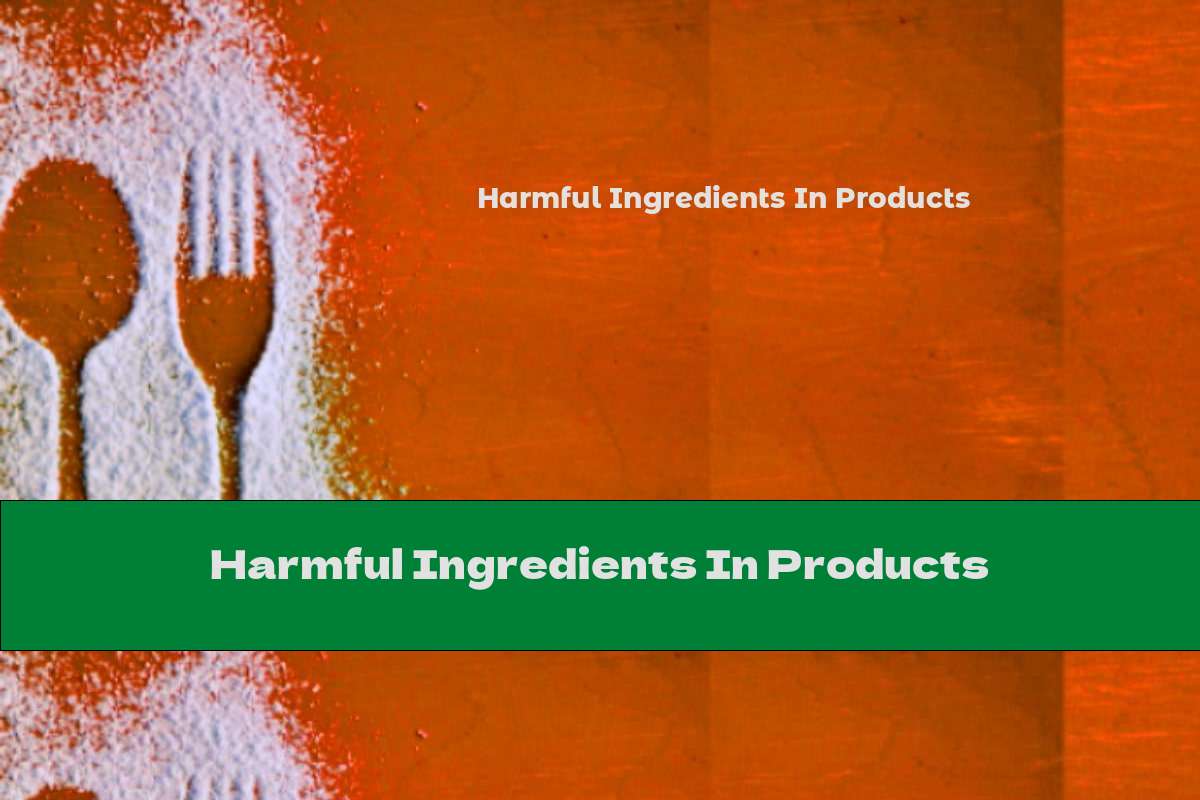Harmful Ingredients In Products
 Author: Maryam Ayres
Time for reading: ~3
minutes
Last Updated:
February 16, 2026
Author: Maryam Ayres
Time for reading: ~3
minutes
Last Updated:
February 16, 2026

If we did not try, sometimes it is difficult to understand the nutritional value of a particular product in the supermarket. All because many manufacturers deliberately use loud misleading names or veiled labeling tactics to make their product more attractive. Let's find out which ingredients in products should be avoided.
If we did not try, sometimes it is difficult to understand the nutritional value of a particular product in the supermarket. All because many manufacturers deliberately use loud misleading names or veiled labeling tactics to make their product more attractive.
If the goal is to lose weight or simply eat healthier, the composition of food can be disappointing. In particular, because many favorite products may contain insidious ingredients , which with regular consumption contribute to metabolic disorders and excess weight.
Let's find out which ingredients in products should be avoided.
Rice syrup
A common ingredient used as a sweetener is rice syrup, and most people don't even think about the fact that it does not benefit the product .
Rice syrup doesn't sound like something to avoid, but it's basically sugar. And too much sugar in the diet contributes to excess weight and the emergence of other problems, because it contains a lot of calories and does not contain useful substances, and therefore does not give satiety.
Lard
Lard, which is an animal fat, can be found in some unexpected foods , such as packaged baked goods and sweets.
Lard is a source of saturated fat. This means that it not only contains a lot of calories, but can also be harmful if you do not know the measure of its consumption. Too much saturated fat in the diet leads to an excess of calories, as well as to an increase in the risk of chronic diseases associated with poor nutrition.
Different types of sugar
Sugar can come in many forms and is often not listed as "sugar" in the product . This means knowing what to look for in the ingredient list on the label the next time you're at the supermarket.
There is sugar in almost everything. Many different names can be found on the product label , such as high fructose corn syrup, cane sugar, dextrose, fructose, sucrose, etc. All these substances are quickly absorbed into the blood, which leads to spikes in the level of glucose. If foods containing a lot of sugar are consumed often and in excessive amounts, this can lead to insulin resistance, excess weight and obesity.
Refined flour
Refined flour can also be a sneaky ingredient and go by several names. If you want to control the amount of flour and its different types in the diet, you should know what to pay attention to.
There are several names for refined flour: white flour, enriched flour, and wheat flour. During its production, fiber is removed from the grain, which makes the ingredient quick and easy to digest. But, as with sugar, it contributes to spikes in blood glucose levels. Products containing refined flour do not give a feeling of satiety for a long time, unlike whole food with fiber, and also have a higher calorie content, which is not beneficial.
Hydrogenated oils and trans fats
They are hard to spot on food labels . To find these ingredients , you should carefully check the composition .
Hydrogenated oils or trans fats are present in many products , even in small amounts. Some peanut butters, for example, contain additional hydrogenated oils for a more uniform consistency. It turns out that trans fats can cause inflammation in the body, and are much more harmful than saturated fats. That's why it's important to read product labels and limit those that contain hydrogenated oils.
Related Articles
- The Importance of Accessible Vegetarian Products: Health Benefits & Tips
- The Importance of Accessible Vegetarian Products: Tips for Finding Nutritious Options
- The Importance of Accessible and Nutritious Products in a Vegetarian Diet
- The Ultimate Guide to Accessible Vegetarian Products for a Balanced Diet
- The Ultimate Guide to Accessible Vegetarian Products: Benefits, Types, and Recipes
Top Nutrition Articles Today
- . The Benefits of Myra E: A Powerful Vitamin E Supplement
- . Granadilla - Health Benefits
- . E481: Uses, Benefits, Side Effects, and Safety Regulations
- . The Power of Nori: Health Benefits and Nutritional Value
- . Plain Bagel Calories
- . Nutrition Trends for 2026: Superfoods, Recipes, and Balanced...
- . The Nutritional Benefits of Quaker Oats: A Complete Guide
- . Nutrition Trends 2026: Diet Plans, Recipes, and Wellness Tip...
- . The Role of Micronutrients in Chicken: A Comprehensive Guide
- . First Complementary Foods: What And When To Give A Child (wi...